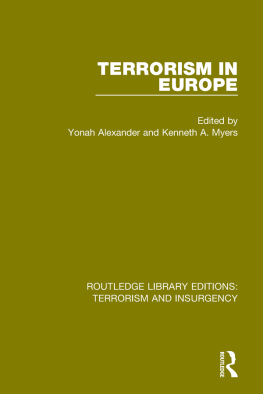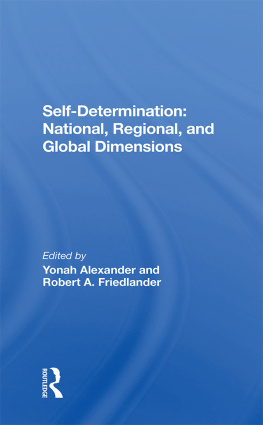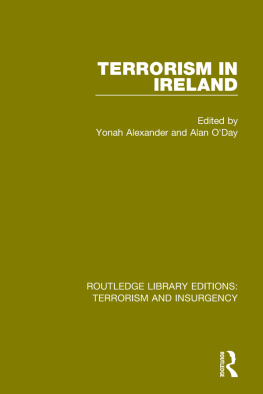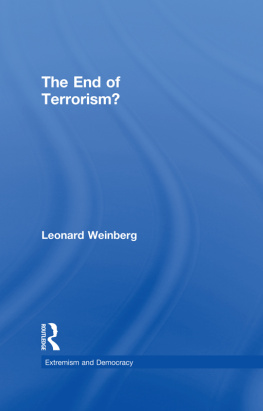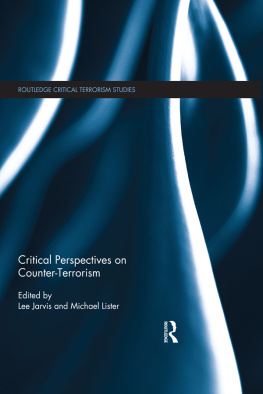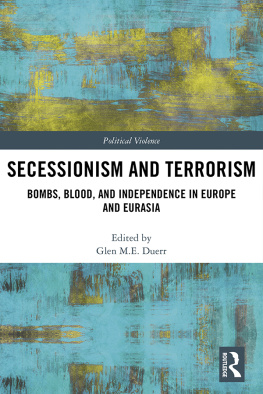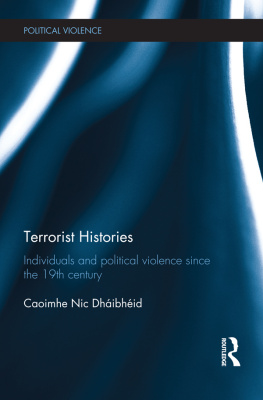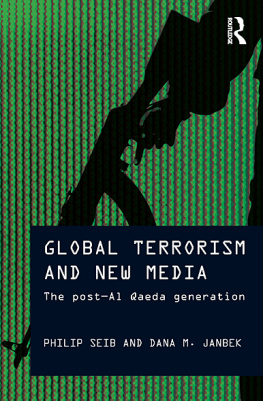First published in 1982 by the Center for Strategic and International Studies,
Georgetown University
This edition first published in 2015
by Routledge
2 Park Square, Milton Park, Abingdon, Oxon, OX14 4RN
and by Routledge
711 Third Avenue, New York, NY 10017
Routledge is an imprint of the Taylor & Francis Group, an informa business
1982 Center for Strategic and International Studies, Georgetown University
All rights reserved. No part of this book may be reprinted or reproduced or utilised in any form or by any electronic, mechanical, or other means, now known or hereafter invented, including photocopying and recording, or in any information storage or retrieval system, without permission in writing from the publishers.
Trademark notice: Product or corporate names may be trademarks or registered trademarks, and are used only for identification and explanation without intent to infringe.
British Library Cataloguing in Publication Data
A catalogue record for this book is available from the British Library
ISBN: 978-1-138-83955-7 (Set)
eISBN: 978-1-315-69683-6 (Set)
ISBN: 978-1-138-90274-9 (Volume 1)
eISBN: 978-1-315-69726-0 (Volume 1)
Publishers Note
The publisher has gone to great lengths to ensure the quality of this reprint but points out that some imperfections in the original copies may be apparent.
Disclaimer
The publisher has made every effort to trace copyright holders and would welcome correspondence from those they have been unable to trace.
Yonah Alexander and Kenneth Myers
In May 1981, in one of the spectacular incidents in the history of contemporary ideological and political violence, a Turkish terrorist attempted to assassinate Pope John Paul II in front of St Peters Cathedral in the Vatican. The Pontiff, who was seriously wounded in the attack, has since fully recovered. The assailant, Ali Agca, a member of the Gray Wolves, a right-wing Turkish extremist group, was apprehended, convicted and sentenced to life in an Italian prison.
Several months later, in September 1981, a German terrorist squad, apparently affiliated with the Red Army faction (RAF), used Soviet-made RPG-7 grenade launchers, as well as Heckler and Koch 33 assault rifles, to attack the car of US army General Frederick Kroesen near Heidelberg. Although the vehicle was hit in the trunk area, it managed to speed away. The General and his wife were slightly wounded while his aide and driver were uninjured. And according to news reports in October 1981, a Libyan hit team was sent to assassinate Maxwell M. Rabb, US Ambassador to Italy, in retaliation for the US downing of two Libyan jets over the Gulf of Sidra several months earlier. Partly as a precautionary measure, the Ambassador had left Rome temporarily while Italian police conducted an investigation.
These latest assassination attempts, as well as some 400 additional incidents of ideological and political violence in Europe recorded in 1981 alone, clearly illustrate that we are living in an Age of Modern Terrorism with all its frightening ramifications. Indeed, during the past two decades, pragmatic and symbolic terrorist acts in Europe including arson, bombing, hostage-taking, kidnapping and murder undertaken by extremist groups for the purpose of producing pressures on governments and peoples to concede to the demands of the perpetrators, have victimised, killed and maimed thousands of innocent civilians. These casualties include government officials, politicians, judges, diplomats, military personnel, police officers, business executives, labour leaders, university professors, college students, school children, travellers, pilgrims and Olympic athletes.
Terrorist acts have also inflicted considerable damage on nonhuman targets. Terrorists have already attacked government offices and police stations, pubs, restaurants, hotels, banks, supermarkets, department stores, oil pipelines, storage tanks, refineries, railway stations, air terminals, jetliners, broadcast stations, computer and data centres and electric power facilities.
In sum, from 1970 to 1981, some 3,851 domestic and international terrorist operations have occurred in Europe, with a toll of some 1,464 individuals killed, 2,834 wounded and with property damage of approximately $500 million.1 It is safe to assume that ideological and political violence is now an established mode of conflict. Terrorism will continue and probably intensify because many of the roots of contemporary violence will remain unsolved and new causes will arise in the coming months and years of this decade.
To be sure, the threatened and actual resort to ideological and political violence for the purpose of achieving limited and broad realistic or imaginary goals by both established regimes and opposition forces is not new in the history of Europe. Ancient civilisations such as Greece and Rome have, in the struggle for power with other nations, utilised extra-legal psychological and physical force. For example, they, as well as other European maritime states between the sixteenth and late eighteenth centuries, have found it expedient to employ pirates, or privateers, to terrorise the seas for the purpose of advancing some national policy objectives. Similarly, terrorism was practised by the party in power in France during the Revolution of 178994, and the government established the reign of terror in 179394.
Moreover, terrorism from below, utilised by sub-state groups against their own governments as well as against other social organisations, became popular in the nineteenth and the early years of the twentieth centuries. Cases in point are the activities of the Narodnaya Volya movement targeting Imperial Russia; the use of violence by nationalist groups such as the Irish, Macedonians, Serbs and Armenians, all struggling for sovereign existence; and the resort to propaganda by the deed, as a strategy of political action by radicals and anarchists determined to overthrow the established order.
While these groups have failed in achieving their strategic aims, none the less they attained some tactical success. They assassinated, for example, Tsar Alexander II in 1881, French President Carnot in 1894, Spains Prime Minister in 1897, Austrias Empress Elizabeth (Zita) in 1898 and Italys King Umberto in 1900. Regicide and other terrorist acts continued in several European countries, including Russia and Spain, until 1914, but abated in central and western Europe. In the inter-war period ideological and political violence was on the rise once again. Nourished by right-wing and nationalists ideologies rather than by anarchic theories, various extremist groups operated in France, Germany, Hungary, Italy and Rumania. Among the successful assassinations are those of King Alexander of Yugoslavia and Barthou in Marseilles in April 1914.

